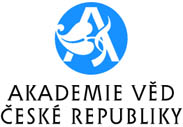|
|
|
Close Help | ||||||||||||||


Theory of Science 2005: Science Policy in the Humanities
In October 2002, „Research Councils in Humanities“ from the Scandinavian countries organized a conference in Odense (Denmark), reflecting the results of workshops conducted from 1999 to 2001, out of which the so-called „European Network of Research Councils for the Humanities (ERCH)“ has been instituted, and the Academy of Science of the Czech Republic has become its member. This grouping acquired a status „ERA-NET preparatory project“. Its main intention was to push forward the interest of the humanities in shaping the European research area.
In 2004, the structure of HERA project activities has been elaborated and concrete targets divided among partners. In September 2004, an international conference was held in Amsterdam, where this project was presented and discussed. After implementing critical remarks from (especially) representatives of ESF, the project was submitted to DG Research in October, 2004. The section of the humanities of the European Science Foundation has become one of the project partners. The draft of the HERA project was approved for financing from the beginning of March, 2005.
The HERA project takes four years (48 months), and it is a coordinative (not a research one) project (of ERA-NET type), which should support close cooperation of the national research programmes in the area of the humanities in forming the European research area. A detailed description of the project, together with its aims, implementation schedule and expected outcomes utilizable in science policy in the humanities, can be found here.
The opening meeting of the executors and exponents of individual HERA project partners was held in Den Haag (Netherlands), in June, 2005. The problems with the project commencement, coordination of activities in the first years of the project solution, the way of financing and presenting results to the partners in DG Research EC, were discussed thoroughly at this meeting. Also the procedures of mapping the state of research infrastructure in the humanities in countries concerned, and the state of the European Reference Index for the Humanities (ERIH) – originating within the ESF activities – were examined in detail. Nowadays, individual humanities classify their journals and divide them into three categories; the Academy of Sciences of the Czech Republic concerns itself with affecting this classification and enabling the enlistment of selected Czech journals in the group with international reputation.
13 countries take part in the project (represented mostly by their „Research Councils“), together with ESF (European Science Foundation) and two other subsidizing institutions: SNSF (Swiss National Science Foundation, Switzerland) a FNRS (Fonds National de la Recherche Scientifique, Belgium).
The list of partners :
(Details)
The project activities will be realised within 9 work packages, which will be put into effect in 7 steps. The Academy of Sciences of the Czech Republic will participate in all these activities; the project manager nominated by the Czech side is Dr. Adolf Filáček, Ph.D..
This step will pay special attention to finding strategically important research topics for the European research in humanities (including future Framework Programmes of EU), to formulation of joint research programmes, including preparation of joint calls for proposals, common evaluation using the instruments analysed in HERA work packages, to detection of possible legal barriers to the formation of joint research programmes in the humanities, etc.
Prof. Dr. Jaroslav Pánek
Member of the HERA Network Board
E-mail: humansci@kav.cas.cz
Tel.: 221 403 220
Fax: 221 403 522
Dr. Adolf Filáček
Manager of the Czech participation in HERA
E-mail: filacek@kav.cas.cz
Tel.: 221 403 482
Fax: 221 403 522
Office of the Academy of Sciences CR
Národní 3
117 20 Prague 1
Czech Republic